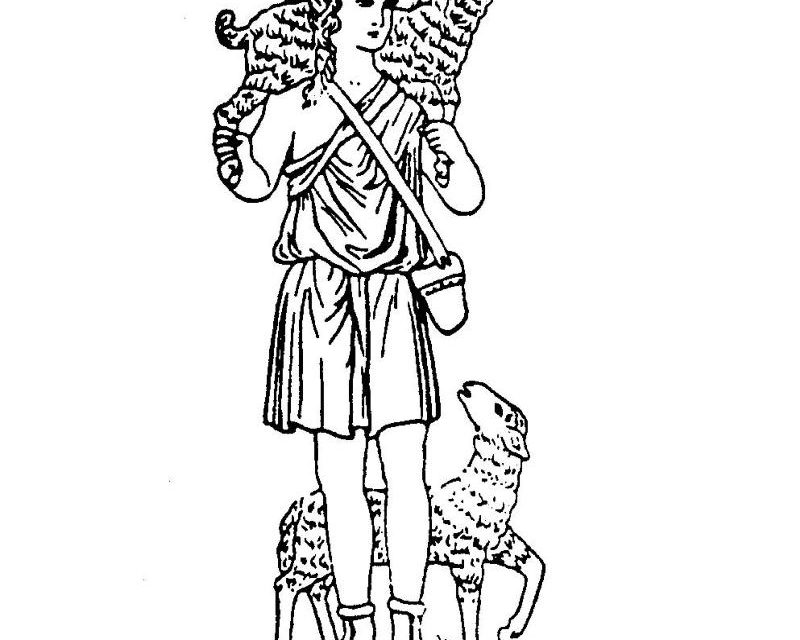As a quick google search revealed, I am not the first person to think about reflecting on the image of the Good Shepherd by considering the question “are sheep dumb?” (I did resist asking ChatGPT that question) The internet, in its usual wise way, provided different perspectives on the question. On the one hand, I came across a number of pro-sheep articles that defended their intelligence on a number of experimental grounds. One Quora thread suggested that, of course, our anthropocentrism leads us to consider sheep dumb, but they are just… different. On the other hand, there’s no shortage of contemporary farmers out there who are ready to concur that sheep are… frustrating: “Spend some time with enough of them and you’ll soon see they aren’t the sharpest tool in the shed.”
However the question of sheep smarts is evaluated, there does seem to be some consensus about characteristic sheep behaviors. First, sheep are pretty defenseless. At signs of danger, they all huddle together – this seems reasonable at first, but also seems like it would make them an even more solid target. Second, they seem extremely vulnerable and disoriented when they are alone. Consequently, they don’t do well alone – with the result that, as a group, they will sometimes do things like all follow one another off a cliff. One pastor points out that the apparent “stupidity” of sheep is really a matter of their extreme dependence, ultimately on the shepherd, despite their tendency to “wander off” and make themselves extremely vulnerable.
This combination of a tendency to huddle up together to defend against predators and a tendency to wander off on one’s own and become disoriented and extremely vulnerable – both tendencies sound a lot like we humans. Hence, the image of going astray that appears in today’s epistle from Peter, which is also in Isaiah. The image is of being lost and not being able to find our way. Wandering off and being lost is an experience that so many do not have today, due to smart phones, but it must be among the most bewildering and concerning.
And the passage in today’s Gospel offers the response image: sheep as responding to the voice of the “right” shepherd. Indeed, while Jesus does describe himself as the Good Shepherd further on, here he says he is the “gate” – which indicates that he is the rightful shepherd, as opposed to the “thief” who enters another way. The Pharisees’ confusion here may be understandable! Yet the meaning here is not that mysterious: the other ostensible leaders of Israel are in fact thieves. Apparently, sheep are able to understand and respond to their master’s voice (if it’s on YouTube, it must be true, right?). The video also makes clear what another farmer indicates, that once you get one sheep moving, you’ll get them all moving.
So it’s not so much that we, the sheep, are dumb. We are vulnerable, and the vulnerability comes from our own tendency to wander off and our defenselessness against predators, especially in such situations. It’s not the most comforting image of the People of God, but it’s also far from the only image in Jesus’ preaching in which “the people” appear to be aimless and susceptible to manipulation. But they respond to the Shepherd’s voice, the Lord’s voice, and once they lock in on that, they need nothing else.





Trackbacks/Pingbacks